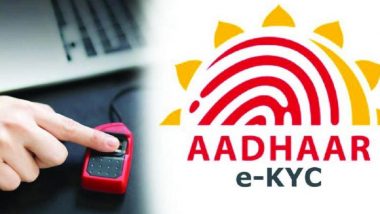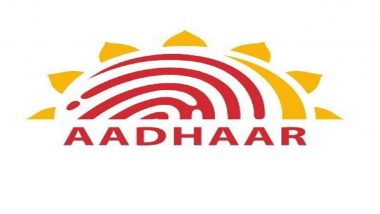New Delhi, October 3: The Centre is promoting offline Aadhaar verification tools as such as QR codes and paperless KYC. These methods are being introduced in an attempt to reduce fears over surveillance, breach of privacy, and data farming. The offline Aadhaar verification tools will not involve sharing of biometrics or involve UIDAI servers for authentication. Aadhaar Verdict Highlights: Here are Key Takeaways From Supreme Court Judgment.
According to a Times of India report, this offline KYC method can be used by service providers, including government, and this will be in addition to other IDs such as driving licences, ration and electoral photo cards, passports, and PAN cards. This method will not require users to reveal their Aadhaar numbers.
Recently, the Supreme Court decided to strike down Section 57 of the Aadhaar Act, which allowed private parties to access Aadhaar data. The Apex Court also declared Aadhaar as constitutionally valid with some modifications.
The Court said Aadhaar is mandatory for PAN linking but is not needed for opening a bank account. It said Aadhaar linking to mobile number is not needed and ordered that no mobile company can demand Aadhaar details from its customers. The Court further added that Aadhaar need not be made compulsory for school admissions as school admissions not a benefit under Section 7.
(The above story first appeared on LatestLY on Oct 03, 2018 11:37 AM IST. For more news and updates on politics, world, sports, entertainment and lifestyle, log on to our website latestly.com).













 Quickly
Quickly


















